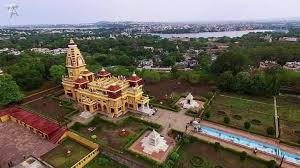On Tuesday, Chief Minister Dr. Mohan Yadav will inaugurate a landmark symposium on Climate Change and Sustainable Development at the Indira Gandhi Rashtriya Manav Sangrahalaya in Bhopal, marking another step in Madhya Pradesh’s commitment to environmental stewardship. Jointly organised by the State Policy Commission, the Madhya Pradesh Council of Science and Technology, and EPCO, with support from Narmada Samagra and other partners, the conference aims to stimulate a national conversation around subnational responsibility in addressing global climate challenges.
What makes this gathering significant is not just its theme but its timing. As the world prepares for the United Nations Climate Change Conference (CoP 30) in Brazil later this year, Madhya Pradesh has taken the pioneering initiative to convene discussions that anticipate India’s regional perspectives. The conclusions drawn from this symposium will inform and strengthen India’s participation at the global stage, making the state the first in the country to initiate pre conference deliberations at this scale.
The symposium, centered on the theme “Living the Right Way,” seeks to harmonize science, policy, and citizen participation in nurturing sustainable growth. It reflects the evolving understanding that climate responsibility cannot be outsourced to international negotiations or confined to academic discourse. True sustainability, as this deliberation will highlight, requires an alignment between individual behavior, societal consciousness, and governmental strategy.
The sessions will range across climate governance, water and biodiversity protection, sustainable urbanization, and the intersection of lifestyle choices with environmental resilience. Moreover, it will feature contributions from scientists, lawmakers, social leaders, and media representatives, an inclusive microcosm of democratic dialogue where ideas meet implementation.
Chief Minister Dr. Yadav’s participation reinforces his administration’s holistic vision, one that treats development not as an adversary to ecology but as its rightful ally. By integrating conservation, community, and climate action, Madhya Pradesh is attempting what few federated entities have done effectively, to turn an existential global crisis into a participatory domestic agenda.
As climate anxieties mount worldwide, this symposium may well define how India’s heartland states shape a planetary conversation, not by rhetoric but by example. “Living the Right Way,” after all, is more than a slogan, it is an ancient Indian ethic reborn as the vocabulary of a sustainable future.




